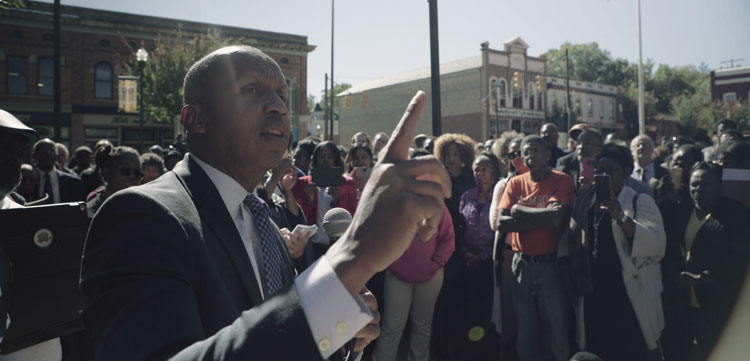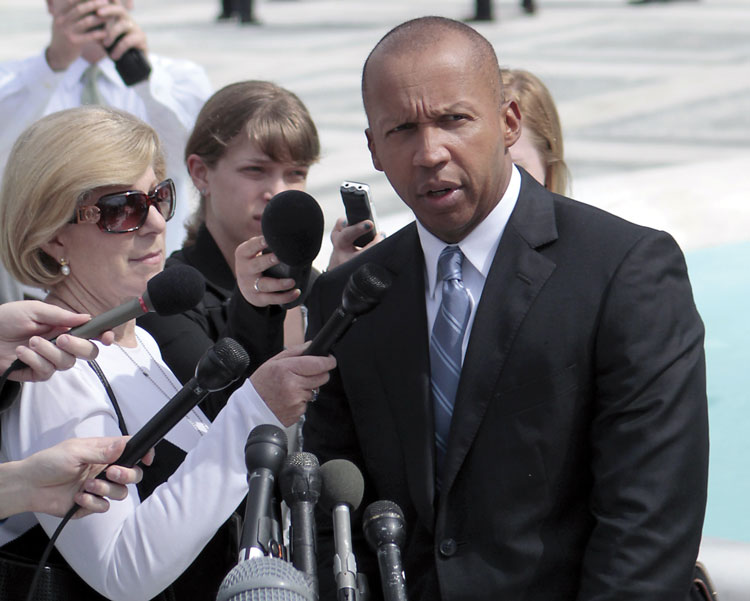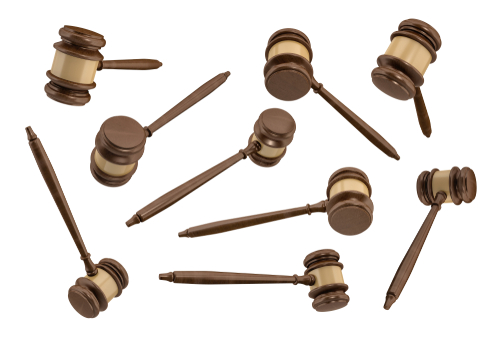Justice, mercy and redemption: Bryan Stevenson's death row advocacy

In October 2016, Stevenson speaks at the dedication of the historical marker honoring the life of Anthony Crawford, a 56-year-old black farmer who was lynched in Abbeville, South Carolina, after arguing with a white merchant over the price of cottonseed. Photo by Equal Justice Initiative.
It wasn’t Stevenson’s first brush with racism. In college he played baseball, and his team made it to a conference playoff in East Boston. “Some white fans started hurling racial slurs and throwing things,” he recalls. “The conflict between the players and the fans got so bad that they had to call the game in the late innings.”
Stevenson’s experiences have taught him to be more strategic and practical. “You can’t just insist on the changes you want to make. You have to work hard and figure out how to achieve them and then struggle to make it happen,” he says.
Before he established the EJI, Stevenson worked for a nonprofit organization (then called the Southern Prisoners Defense Committee) in Atlanta. Some of his cases took him to Alabama, where there was a great need for indigent defense. His initial plan was to help set up the EJI in Montgomery and then go back to Atlanta.
“I never started out imagining that I would create my own organization, but the problems were so acute that I ended up staying,” says Stevenson. “We don’t have a public defender system in this state, and there wasn’t a culture of strong indigent defense. We had imagined there would be some funding from the state government, but that never happened. Lots of people were facing execution with deadlines, and it wasn’t easy finding people who would come work with me.”
Deep Commitment

Photo of Bryan Stevenson by Equal Justice Initiative.
Today there are hundreds of applicants for every position the EJI posts, which Stevenson says is “radically different” than 30 years ago. “In the old days I would take any lawyer who I thought was competent and committed because we didn’t feel that we could be picky,” he says. “As we began to understand just what this work requires, I began to realize I needed people who were hardworking and who were strong in multiple areas, who had the ability to stand up on their feet and also had top-shelf research and writing skills.”
The initiative needed lawyers with a Peace Corps mentality. “You couldn’t come to a place like Montgomery and have the same expectations or social life or cultural life that you might have if you were living in Manhattan or D.C. or LA,” he says. “This was a small community, but it was also a community that in many ways was not going to be supportive of what we were doing and even was frequently nonsupportive. All these things meant that it was going to take someone with a deep commitment to the work.”
Despite the dark days, Stevenson remains motivated. “I am standing on the shoulders of a lot of people who had to do so much more with so much less,” he says. “I’m in a community where 60 years ago people were doing what I’m doing. Like them, my head is bloody but not bowed. Because of that, I feel an obligation to fight and keep going and to push even when it’s difficult and challenging. I’m still persuaded that hopefulness is important and critical to our ability to change the world. I’ve always believed that, but now I believe it even more deeply.”
Darlene Ricker is a legal affairs writer based in Lexington, Kentucky. She is a former staff writer and editor for the Los Angeles Times and the Boston Globe. This article was published in the August 2018 ABA Journal magazine with the title "Justice, Mercy & Redemption: Bryan Stevenson, founder of the Equal Justice Initiative, has learned you can’t change the world without some discomfort or inconvenience."



